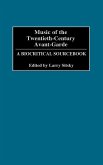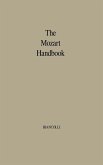Tuck's work is an attempt at the rehabilitation of Karl Radek, a sidekick of Lenin's who fell victim to Stalin's vengeance in the 1930s. Though not a full-scale academic biography, it is satisfying and fast-moving without being superficial, and offers an intellectually intriguing thesis. . . . Where others have seen betrayal, Tuck sees Radek the mischief maker. Although Radek implicated many guiltless people and testified to lies, Tuck argues Radek's performance was a master stroke of mischief making, turning the tables against Vyshinsky, showing up and revealing the truth about the show trials themselves. Choice The enigmatic Karl Radek, a victim of the Moscow purge trials, was by turns a Pole, a Jew, a West European social democrat, a Soviet official, a Trotskyist, and a Stalinist. A born iconoclast, he began his career by attacking established political orders and ended it by defending one of the world's most blatant tyrannies. Tuck opens this analytical biography with an account of Radek's atypical early adolescence and then traces the evolution of Radek's political thought from Polish nationalism to patriotic and later international socialism. Radek's six years in Germany were marked by his journalistic success and subsequent disgrace as well as his expulsion from the German and Polish social-democratic parties. His fortunes turned when he joined Lenin in Switzerland, and thereafter he established himself as one of the leading rightists in the Communist movement. His romantic liaison with Larissa Reissner, his allegiance to Trotsky and later to Stalin, and his downfall following the publication of his satire on Stalin are treated in subsequent chapters. The work then presents an account of Radek's trial and banishment to the Gulag and an analysis of Radek's ultimate fate. It concludes with an overall assessment that challenges Arthur Koestler's evaluation of the man.








